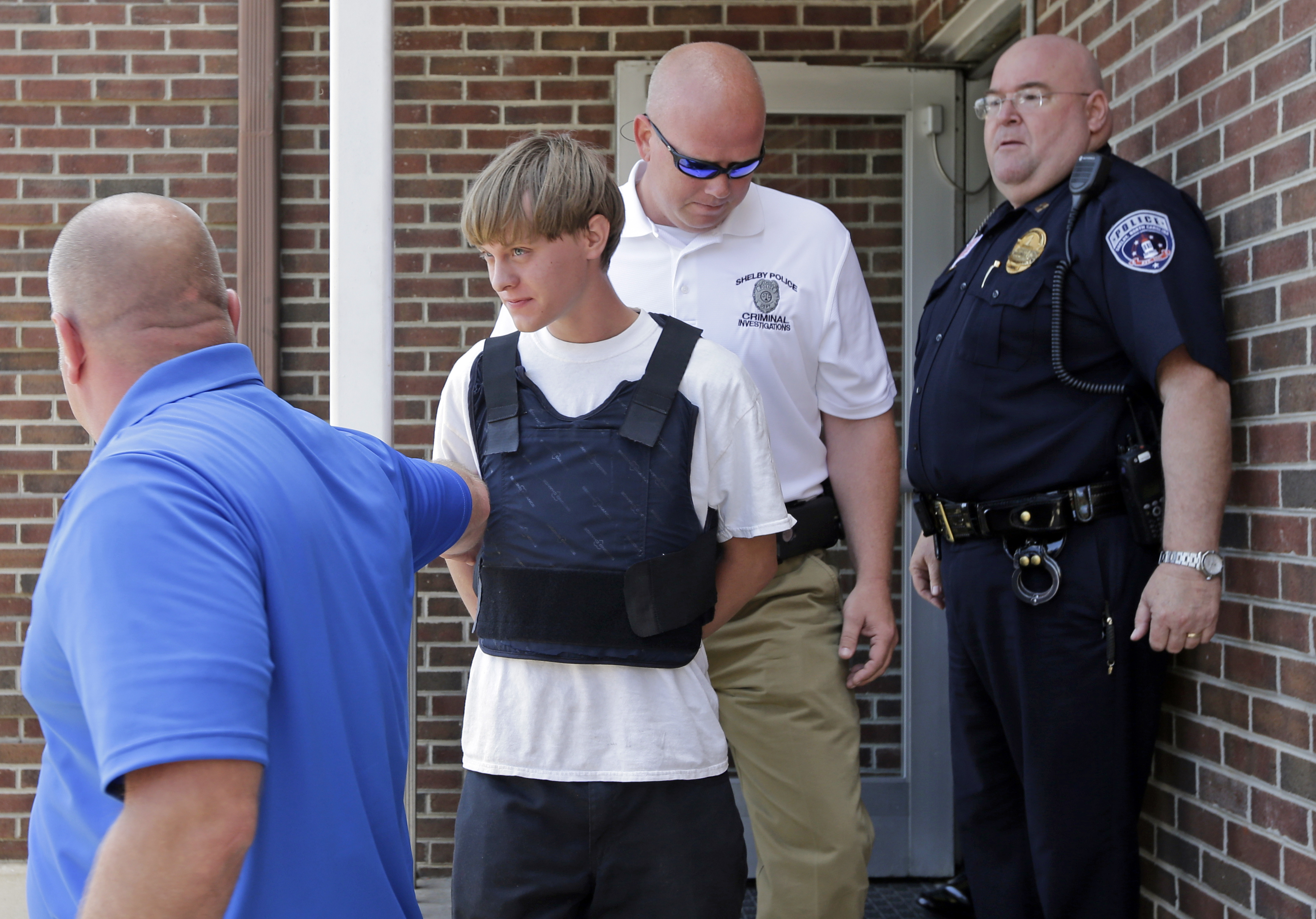The lessons of Charleston: The real threat to America is right-wing terrorism
This isn't the first right-wing attack in the post-9/11 era. It probably won't be the last.


A free daily email with the biggest news stories of the day – and the best features from TheWeek.com
You are now subscribed
Your newsletter sign-up was successful
On Wednesday night, a man named Dylann Storm Roof allegedly entered a black church in Charleston, South Carolina, during a prayer meeting. There he reportedly sat quietly for almost an hour, before opening fire with a pistol and killing nine people. He has since been captured.
When a mass shooting happens, people naturally wonder about the motivation. What we know so far is that Roof made overtly racist remarks to his friends; boasted a Facebook profile picture that showed him wearing the flags of white supremacist African states; and allegedly told one of the victims, "You rape our women and you’re taking over our country. And you have to go." It seems a safe bet that racism was a likely motive in the Charleston shooting.
Until we know more about the gunman, it's impossible to get more specific than that. What can be said, however, is that the attack is congruous with America's history of white supremacy and right-wing extremism, a real domestic threat that far outstrips that of Islamist terrorism. If terror is the mortal threat it has long been trumped up to be, then we must conclude that our whole political and law enforcement apparatus has been pointed in the wrong direction.
The Week
Escape your echo chamber. Get the facts behind the news, plus analysis from multiple perspectives.

Sign up for The Week's Free Newsletters
From our morning news briefing to a weekly Good News Newsletter, get the best of The Week delivered directly to your inbox.
From our morning news briefing to a weekly Good News Newsletter, get the best of The Week delivered directly to your inbox.
First, this should be emphasized: Random murders of black civilians are not some historical aberration. On the contrary, they were the very foundation of the political system in the American South for something like 90 years. Segregation and Jim Crow did not just mean separate drinking fountains, but a system of racial subordination in which blacks were controlled through fear of psychotic violence. This shooting spree is the worst single incident in many years — but it doesn't hold a candle to the Colfax Massacre. If he had done it in 1890, the Charleston gunman probably wouldn't have even been arrested.
That ugly history has not been confronted in a remotely honest way. Right now, the flag of treason, chattel slavery, and apartheid flies over a Civil War memorial on the grounds of the South Carolina statehouse. In 2014, South Carolina Gov. Nikki Haley defended this placement, noting that she had heard no complaints from local CEOs.
That brings me to right-wing militant activity, which also has not been confronted. In 2009, the Department of Homeland Security finished a report on right-wing extremism, started during the Bush years. It argued that the election of the first black president, the Great Recession, and veterans having trouble adjusting to civilian life (Timothy McVeigh was a veteran of Desert Storm), and other factors might lead to a spate of terrorist attacks, similar to what happened in the 1990s. It was mainly a cautionary note, proposing little aside from increased watchfulness and naming no specific threats.
Nevertheless, the backlash from conservatives was immediate and fierce. Pundits like Rush Limbaugh and Michelle Malkin spun it as indicting all veterans and conservatives. DHS Secretary Janet Napolitano eventually withdrew the report, and apologized repeatedly.
A free daily email with the biggest news stories of the day – and the best features from TheWeek.com
Six years later, how have things turned out?
Since 9/11, an average of nine American Muslims per year have been involved in an average of six terrorism-related plots against targets in the United States. Most were disrupted, but the 20 plots that were carried out accounted for 50 fatalities over the past 13 and a half years.In contrast, right-wing extremists averaged 337 attacks per year in the decade after 9/11, causing a total of 254 fatalities, according to a study by Arie Perliger, a professor at the United States Military Academy’s Combating Terrorism Center. The toll has increased since the study was released in 2012. [The New York Times]
Those few Islamist plots — a great many of which were basically created wholesale by the FBI — are presented as justification for tremendous effort on the part of law enforcement and the military. They assassinate American Muslims overseas. They deluge American mosques with infiltrators and spies. They keep innocent people in Guantanamo Bay for year after year.
Since 9/11, right-wing terrorists have killed more than five times as many people as Islamist ones. Yet a short study warning to keep a watchful attitude towards the former is met with enraged hostility. It reveals both the small actual danger of Islamist terrorism, and the utterly ridiculous and hypocritical way in which anti-terrorism resources are allocated.
Still, if conservatives are confident in their ideas, and do not subscribe to the paranoid delusions of the sovereign citizen, white supremacist, or neo-Nazi movements, they should not feel threatened by close investigations of such people. But I'm not holding my breath.
Ryan Cooper is a national correspondent at TheWeek.com. His work has appeared in the Washington Monthly, The New Republic, and the Washington Post.
